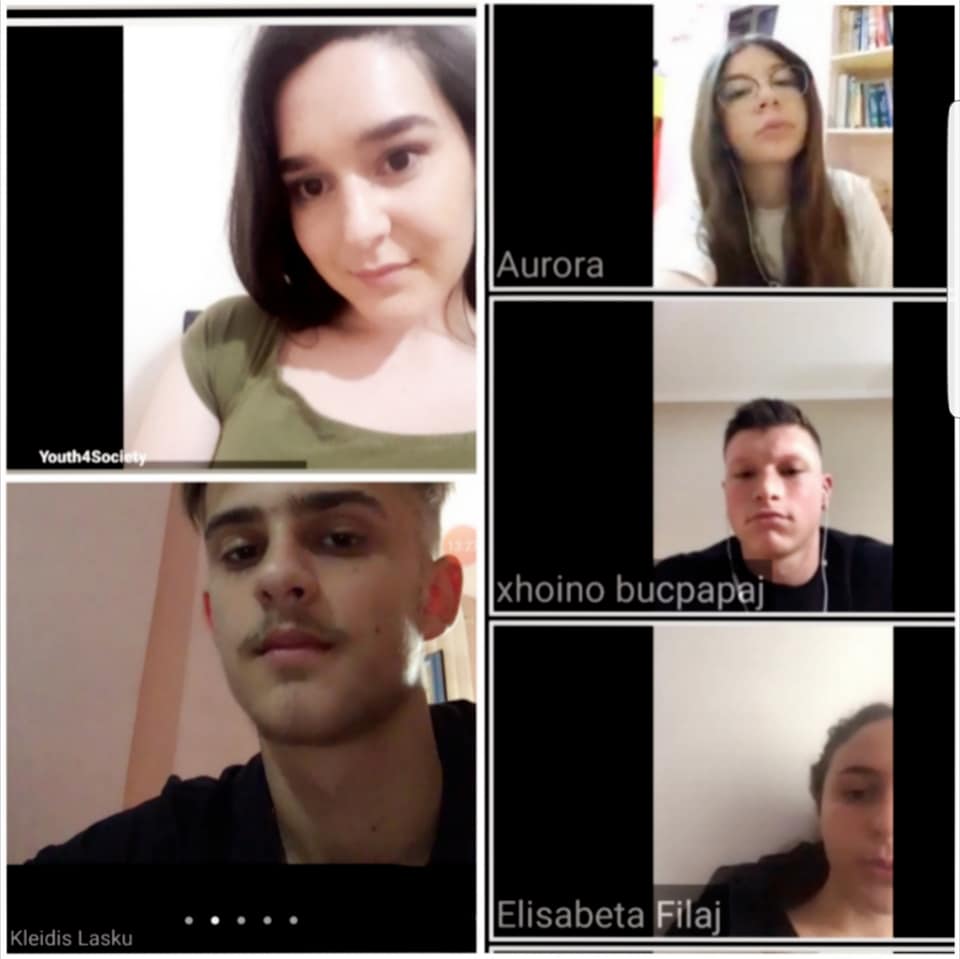Focus Group
Project “YOUth Ambassadors of Non-Formal Learning”
Country: Albania
Facilitator: Vilma Dervishi
Organisation: Youth 4 Society
Date and Location: 20.05.2020. via Zoom
Duration: 1h
Participants: 11
List of questions
- Do you think for NFE is important age, gender, nationality?
Regarding this question, the participant gave many opinions, most of them were that for non-formal education is not age, gender or nationality limit.
- What does NFE mean to you? Can you define?
The participants see non-formal education in this point of view:
-Non-formal education is learning through games.
– Non-formal education is learning from activities outside the school and getting a certificate on a certain topic.
– Non-formal education is to learn outside of school curricula with seminar trainings.
- Have you ever been a participant in an NFE program? If yes – in which one?
Most of the young people had been part of trainings, seminars mainly in Erasmus + project some of them shared their experiences what they had learned and how they had influenced these activities in the way they see things for the future. These activities were developed in Albania in Tirana, Durres but also in other Balkan countries like North Macedonia, Bulgaria.
- Do you know something about Youth Law / Strategy / Action Plan, as well as other documents related to youth?
On this topic we had a long discussion with the participants most of them were not informed for Action Plan or youth law in Albania.
- Have you ever participated in the youth decision-making process? If yes, in which one?
In the group was a participant her name is Elisabeta Filaj. She is the president of the high school senate Sami Frasheri. She shared her experience with others participants. In Albania every high school has a president senate for students where through its students convey their voice for certain changes in the school. She discussed how the senate and the president of students of the school has been a bridge to connect NGO organizations with young people from this high school to be part of projects developed by the Erasmus + program. Also, she said the president of students always is elected by the students themselves to represent their voice. Each president senate in high school is working to give more priority to such activities to enable schools to be as cooperative as possible with non-governmental organizations.
- Do you think that more support from the Government is needed to improve the status of young people and in the NFE sphere? If yes, what are the benefits of this, and what are the disadvantages?
Yes, they think it’s very important to support youth that wants to be active in the decision-making process. Everyone thought that the government has been cooperative but should do more in this area to support more and not only in Tirana which is the capital but also in the small cities of Albania.
- Does NFE activities help you for your personal development. If yes, how? If not, why?
Regarding this question we had a long discussion as each of them expressed how positively the participation in these activities has on the personal development of each of them in those activities they are involved.
- improving communication skills
- improving the ability to speak in public
- being a cooperative and working in a group
- For you, why is it important to be involved in activities through non-formal education?
Being a participant in the activities developed in the field of non-formal education has a very positive impact on young people, each of them expressed this. From the experience that the participants share all together we concluded that the experience that somebody get in activities developed under non-formal education has a positive impact on young people like –
- Receiving information on certain topics where you don’t have information
- Creating new contacts.
- Learning more about new culture.
- Certificates for trainings or seminars where they are part.
- Being cooperative with others.







